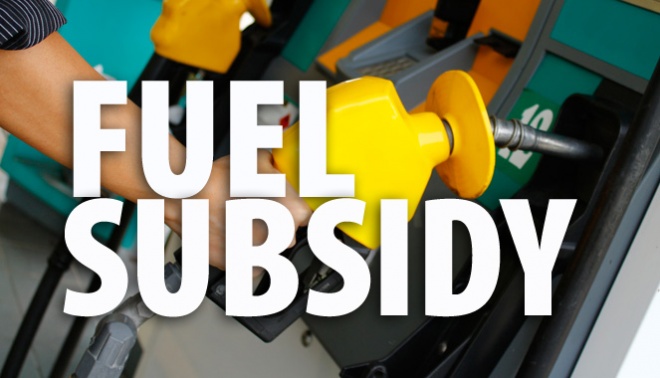Despite the intervention of the Minister of Finance, Ngozi Okonjo-Iweala, to avert fuel supply crisis in the run up to the forth-coming elections, long queues of anxious motorists resurfaced on Friday in filling stations in major cities across the country.
The minister, along with officials of the Debt Management Office, had met with members of the Major Oil Marketers Association of Nigeria on Monday to reassure them of government’s support towards sustained supply of petroleum products in the country.
The meeting followed marketers’ claim that the recent devaluation of the Naira by the Central Bank of Nigeria had imposed extra burden on their capacity to finance further fuel importation.
The continued pressures from falling crude oil prices at the international market since July last year had forced the devaluation of the Naira in November 2014 from N155 to N168 to the dollar,
On February 19, 2015, the Naira was further devalued to N199 following CBN’s closure of the official foreign exchange auction windows and redirecting of all demands for FOREX to the interbank market through the Deposit Money Banks.
The devaluation of the Naira resulted in a $13 price differential added to the total cost of importation of the product and subsidy by government.
Executive Secretary of the marketers’ association, Thomas Olawore, said on Friday that the differential between $155 and $168 as well as between $168 and $199, which accumulated to about N100 billion, was a burden they could not bear as businesses.
He said the figure also included the interest payable by markers to various banks on loans used to fund imports, which they failed to pay within the 45 days grace period approved for them.
To encourage them to resume fuel importation, Mrs. Okonjo-Iweala had during the meeting with the marketers agreed to remove all bottlenecks in fuel imports, including the settlement of N100 billion before the end of March to banks to avert fuel supply crisis.
Although the marketers have since agreed to resume importation, long fuel queues were seen outside filling stations in Abuja and other major cities across the country since Thursday, as anxious fuel consumers anticipated shortage of products supply.
Mr. Olawore explained that the fuel queues were a result of over a month lag in the fuel importation by marketers.
“It takes between 14 and 21 days to bring in products to the country,” he explained. “If it is only on Monday that the minister met with marketers, there is no way products would be imported within these few days.”
He explained that once fuel supply was stopped, the problem of scarcity would not manifest immediately, adding that the long queues currently manifesting in Abuja and other major cities were because marketers had no money to import over the past one month.
On its part, the Petroleum Products Pricing Regulatory Agency said it has also taken steps to allay the fears of marketers by reflecting the new CBN foreign exchange rate of $199 to the dollar on its products pricing template published on its website.
Besides, the Executive Secretary, Farouk Ahmed, said the pricing regulatory agency had already prepared some outstanding claims on the foreign exchange differential and interest charges for the marketers, which would be forwarded to the DMO for review and approval before being forwarded to the Ministry of Finance for payment.
Again, he said the Minister of Petroleum Resources, Diezani Alison.Madueke, has been very supportive of the effort to ensure uninterrupted fuel supply.
Apart from the approval for the third quarter import allocation to marketers released since December 2014, Mr. Ahmed said the minister has also given approval for the agency to commence work on a supplementary import allocation to marketers in line with petroleum support fund guidelines.
Meanwhile, the NNPC has advised fuel consumers against panic buying and hoarding, as it has injected additional 688 million litres of petrol into the market.
The corporation’s spokesperson, Ohi Alegbe, said the NNPC was working with all downstream industry stakeholders to eliminate the noticeable artificial fuel queues in some fuel stations across the country.
Mr. Alegbe said the corporation had substantially increased the volume of petroleum products distributed to marketers, within the last 48 hours, to arrest any short fall capable of triggering fears of an imminent scarcity of products.

